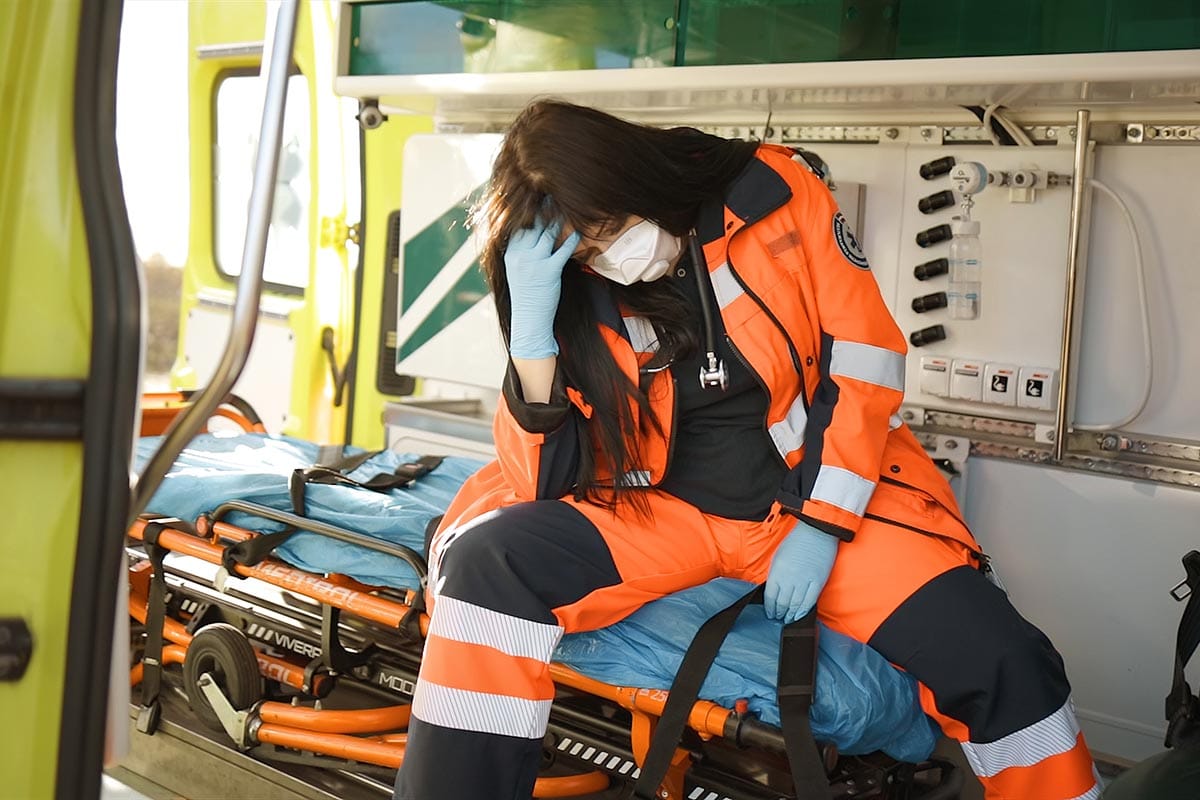
Today’s first responders face insurmountable challenges. Increased demands and pressure, pandemic fatigue, and natural disaster can lead to compounded stress and unhealed trauma among first responders. Unfortunately, many first responders lack tools to support stress reduction and heal work-related trauma. This stress often leads to self-soothing with addictive substances. Luckily, there are now first responder support programs run by mental health professionals to help the hardest working members of our communities get the support and care they need.
Seeking jobs in substance abuse and addiction can be a rewarding, enriching career path. Behavioral Health Jobs has an extensive job board full of positions at all experience levels. From office administrators to addiction counselors, you can find the perfect position to take your career to the next level. Browse hundreds of available jobs today and upload your resume to get started.
Signs of Addiction Among First Responders
Current studies show that trauma and mood disorders contribute to addiction triggers and might be the root cause of a person’s addiction. Trauma and constant stress are a daily part of life for first responders. Unfortunately, there is rarely an opportunity for first responders to destress and regulate their nervous systems. Prolonged trauma and stress cause the body to stay in the fight, flight, or freeze mode. During this time, the nervous system lives in a deregulated state. Self-medicating is one way many people attempt to re-regulate. Unfortunately, this can lead to addiction. Common signs of addiction can include.
- Acting intoxicated
- Mood swings
- Changes in sleep or eating patterns
- Changes in hygiene
- Drug or alcohol cravings
- Manic behavior
- Depression
Withdrawal is often the first sign of addiction. During withdrawal, the brain believes it cannot exist without more drugs or alcohol. This natural reaction makes quitting cold turkey tough and unsafe. An addiction recovery program run by mental health professionals is the safest way to detox and recover from substance use with medical and psychiatric support.
How to Support a First Responder You Love
If a first responder in your life is living with addiction, show support with open, compassionate communication. Educate yourself on addiction, recovery, and your loved one’s personal triggers. Knowing the signs of relapse and showing your support by promoting safe, sober activities is essential. Never approach a first responder’s recovery with judgment. Instead, consider what they’ve experienced. Here are some great ways to show support:
- Check in on your loved one frequently while respecting their boundaries.
- Attend support groups together.
- Cultivate a sober community together.
- Talk to your therapists for strategies to understand your loved ones’ traumatic experiences and stress responses.
Criticism and judgment never help. If a first responder you love is struggling, help them by researching support groups and 12-step programs that bring first responders together towards sober and healthy lives.
Learn More About First Responder Support Programs
If a first responder in your life is struggling with addiction, helping them find an addiction treatment program can help. First responders are more likely to experience some of the most traumatic events. As a result, they often develop post-traumatic stress disorder (PTSD). PTSD can lead to anxiety, depression, and chronic pain. These conditions are often comorbid with substance use disorders.
First responder support programs help those struggling with addiction by treating the whole person. A comprehensive treatment program will address physical, mental, and emotional healing. Many first responder support programs are offered at no cost to the individual. If you or someone you love is a first responder struggling with addiction, don’t hesitate to reach out for help.
Finding a Job in Substance Abuse at Behavioral Health Jobs
If you’re looking for a job in substance abuse, look no further than Behavioral Health Jobs. We have hundreds of available positions in the addiction counseling field. From case managers to addiction counselors, you can find the perfect position to take your career to the next level. Browse hundreds of available jobs today and upload your resume to get started.
